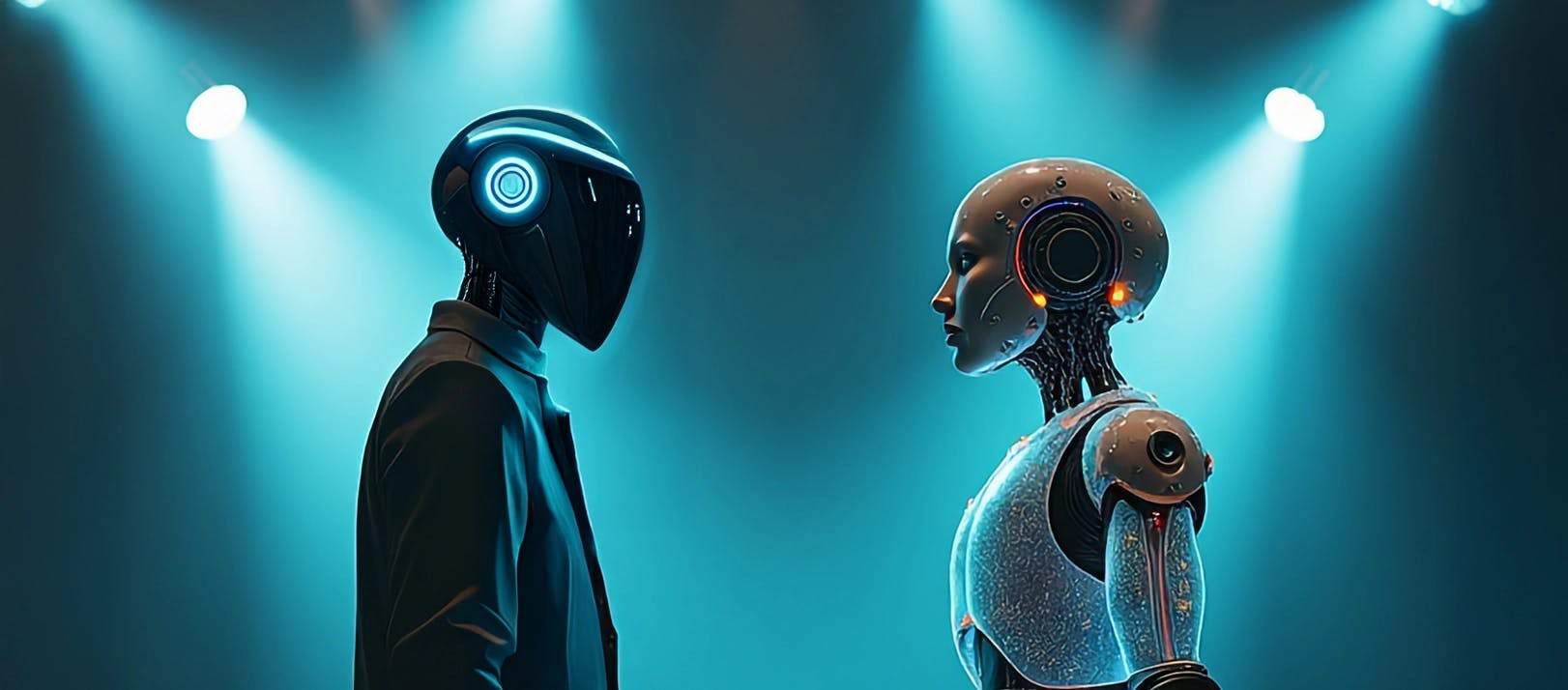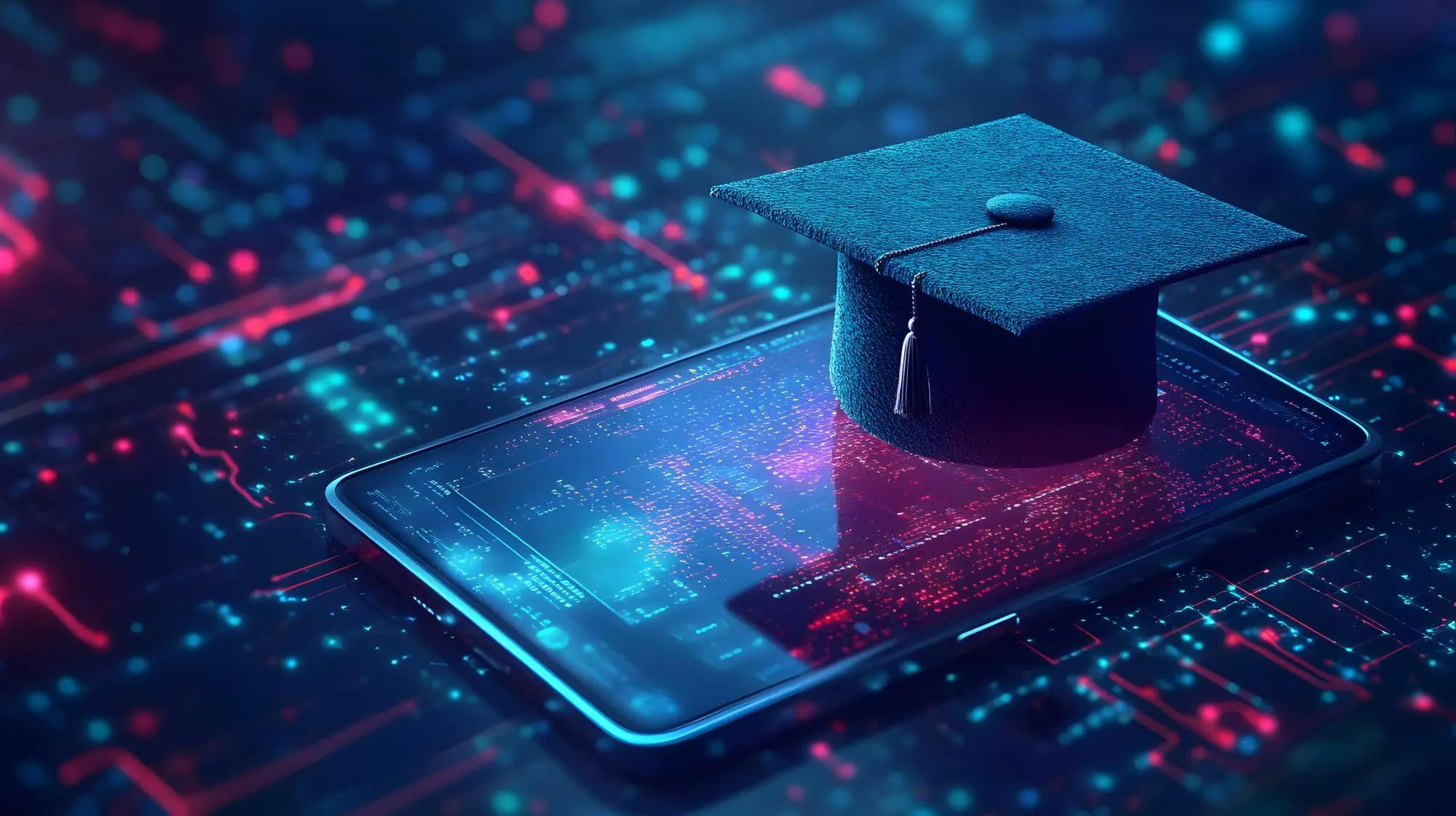
,
In the autumn of 2020, Melody, a high school teacher from a small town, was completely shaken up when her world was turned upside down. The pandemic in the region has caused the schools to close their doors. Melody, like many other educators, was thrown into the pool of the transition to online teaching.
Going through different platforms and learning about new online tools was a heavy burden for her. However, as the year went on, some magic started happening as tools driven by artificial intelligence became the main focus. These AI developments were introduced at the school that included adaptive learning platforms, real-time feedback systems, and intelligent content creation tools. This allows Melody to provide education more efficiently and in a personalized manner.
AI's rapid evolution in different sectors is sweeping how we live, work and learn. By 2025, AI in EdTech USA and other countries will become an essential part of day-to-day learning and it will change conventional study rooms into new, interactive, and individualized experiences. Let us now find out AI trends that will transform edtech in 2025.
Top AI Trends in EdTech 2025 to Follow
As we are looking forward to the future of learning through AI, many AI Innovations in EdTech are shaping the landscape of corporate education, school as well as tertiary education. They are:
1. Personalized Learning Experiences
The most recognized Artificial Intelligence trend in the education sector is the implementation of individual learning paths that learners can choose according to their preferences. Hence educational instruction is no longer limited to a one-size-fits-all approach. In 2025, AI-powered adaptive learning technologies will be the main tools used in learning institutions, preparing the most suitable lessons and content for the students. These will take into account the preferred learning style of each student based on their individual needs.
AI-Driven Adaptive Learning Platforms
The educational platforms driven by AI development will become more advanced, providing more knowledge of students' progress and supporting teachers. AI can automatically provide extra materials or alter the curriculum to suit the more challenging parts based on the progress of the students. Therefore, such tools will be more advanced as they offer all the necessary support he/she needs.
Adaptive learning platforms, in addition, will also be available in such a way that they support different learning styles in the classroom/through mobile learning. Some children excel with visual aids and while others prefer hands-on, interactive learning. AI will allow teachers to accommodate the multiple preferences of those learners by presenting customized resources such as videos, interactive quizzes, or practical exercises. Through the identification of the most successful teaching methods for a particular student in each case, such platforms will bring about a more encompassing and engrossing learning environment.
Real-Time Feedback and Recommendations
The learning experience of students will be significantly enriched through AI’s capability to give instant feedback. Rather than waiting for a few days or weeks to receive the outcome of an assignment, students will be provided with immediate suggestions on how to make the paper better. This immediate feedback will trigger better learning, as it will enable the students to rectify errors right away and keep their focus continuously on the subject matter.
In fields such as mathematics or programming, the knowledge of each concept is a must before approaching the next topic. The students could then be able to get real-time feedback before falling behind. In the next few years, this ability to give feedback quickly will be very widely used and will help students to get greater scores as well as grow more confident in themselves.
Real-time feedback for educators will decrease the time that can be otherwise spent on grading the assignments. This will keep them more involved in providing personalized Learning with AI support to their students.
2. Enhanced VR and AR Experiences
VR and AR in all probability will become a necessity in edtech in 2025. VR/AR in Education will be included in a wide range of educational applications offering lifelike experiences.
Immersive Learning Environments
AI-powered immersive learning environments provide students with interactive experiences, where they can talk to a historical figure, walk on the moon, or even witness the concepts of time travel. This will make study more engrossing and offer learners exciting learning opportunities that are not normally available in the classrooms. AI-driven simulations learn from the student’s data and provide the best learning path dynamically.
Interactive Virtual Tutors
Artificial intelligence-based virtual instructors can provide guidance in real time. As a case in point, a virtual teacher could turn up in a VR biology lab to walk students through the dissection or take care of the complications in an interactive method. These teachers are flexible to the learner's learning styles and can teach in any way a student might find easier. The introduction of virtual tutors will also take education to the masses, ensuring that top-grade learning materials reach students who cannot afford conventional tutors.
Interested in using the latest AI trends in EdTech to stay competitive?
3. Intelligent Content Creation and Curation
In the coming years, AI will play a bigger part in producing and managing educational content. In 2025, smart content generation tools will empower instructors with the possibility to develop course materials with less effort. While AI-managed curation systems will help students find necessary academic resources.
AI-Generated Educational Content
AI will be a teacher’s personal assistant since it will automate the creation of quizzes, tests, and lesson plans. Hence, teachers will be able to use more time on other useful projects, and at the same time be aligned with the learning objectives.
AI-driven content creation tools will also help multilingual education improve by the generation of content in various languages other than the native language. Intelligent Content Curation will make a huge difference in areas where students are made up of many different language speakers. This will be a good way to help everyone learn.
However, teachers will have to keep an eye on AI-generated content to make sure it's accurate, and to the point. As AI tools get more advanced, the collaborative relationship between educators and AI systems will be a key factor in the execution of smart content production.
Content Curation and Discovery
AI will also help students sort the countless online resources that are available out there by creating content that matches their study style. Through machine learning algorithms, these AI platforms will find the necessary resources such as videos, articles, and interactive exercises, enabling students to choose the most relevant content. This smart curation will encourage self-regulated learning, thus students will become the owners of their learning progress.
4. Advanced Data Analytics for Educators
Data forms the basis of the evolution of artificial intelligence. The year 2025 will witness advanced data analytics making educators aware of students' progress and allowing them to modify their learning practices. So, teachers with AI-driven data analytics will change the way they monitor students. Further, teachers could use artificial intelligence data mining tools to see what lies ahead, as well as to notice if someone is getting too far behind to cope.
Predictive Analytics for Student Performance
By 2025, AI-based predictive analytics will empower teachers to locate the students who might be left behind. The AI systems will give educators the information, through analysis of the behavior, endeavor, and academic performance, which students require more support. As an example, in the case where a student exhibits mathematics weakness, AI systems will notify the teacher at an early stage. This in turn empowers the teacher to provide necessary support to the students ahead of time.
Teachers can also provide customized instruction to each student using predictive analytics. This will make learning for students faster and performance outcomes better.
Moreover, educators will have a comprehensive view of the learning paths of numerous students. These profiles will not only contain academic performance; they will also be based on mental and emotional elements that have an influence on a student's learning.
Streamlined Administrative Tasks
Apart from academic performance, AI will greatly contribute to saving educators from the heavy load of work by automating manual activities. AI that can grade assignments and monitor attendance will cut the time educators have to spend on chores. Hence they will be able to concentrate on teaching. In other words, AI can grade multiple-choice tests or even evaluate written assignments using natural language processing. Therefore, teachers can communicate with students personally.
Also, administrative tasks such as scheduling parent-teacher meetings, tracking student progress, and generating reports will be automated. This automation will improve educational institutions' efficiency, thus, enhancing teachers' and administrators' ability to direct more resources to student learning and development.
Moreover, AI for Student Performance Analysis will help in planning the curriculum by examining complex datasets on student performance, engagement, and feedback. It can propose changes to the curriculum to allow students to develop skills. This guarantees that the teaching materials are up to date and work well. Automation of these tasks allows institutions to be more adaptable and resourceful in dealing with the changing educational requirements.
5. Ethical Considerations and Data Privacy
AI has undoubtedly brought a lot of benefits to the educational system. However ethical issues and data privacy will be the crucial elements of 2025. As AI systems are gathering massive data on students, trust in information should be the top priority.
Ensuring Data Security
One of the biggest issues facing AI-driven education systems is data security. In the next few years, institutions should take rigid measures to ensure the safety of the students' data because security breaches and illegal uses may occur. AI algorithms can generate sensitive data, showing the level of success, preferences, and in some cases even biometric data of the individual. Apart from the right users, the information can be abused for cybercrimes.
Addressing Bias and Fairness
Artificial intelligence tools are becoming increasingly responsible for detecting and fixing bias. One of the holistic problems now is that AI algorithms may tend to transfer the existing biases or even push forward the ones that are not fair. For example, an AI-based tool may boost students from a certain social-economic category or a specific area because the data from which it learns is skewed.
In 2025, the essential part of making AI products that are fair and inclusive will be more important. Developers need to remember diversity and inclusivity when designing algorithms, ensuring AI systems are educated on diverse datasets. Moreover, there will be a much bigger focus on transparency and accountability.
Regulations concerning AI in eLearning will likewise progress in the future from the concerned authorities and educational agencies. This will ensure AI is used fairly and ethically.
Conclusion
The future of education is moving forward through the swift development of AI technologies. By 2025, AI technologies like personal learning, VR/AR learning experiences, smart content creation and advanced data analytics will change how students get educated and teachers teach. These advancements are also expected to significantly impact the Edtech market, driving innovation and creating new growth opportunities. Although the future looks bright and more promising with these new technologies, they are accompanied by ethical issues that have to be sorted out to avoid unfairness and to be secure. To put it in a nutshell, the growth of AI in education is very optimistic as it offers various ways of providing better learning. By incorporating proper techniques, schools can benefit from AI technology which will create a much better and fairer future for students and teachers in all parts of the world.
Custom eLearning Development companies such as Codiste are at the forefront of developing AI-driven solutions for EdTech. Codiste’s unique use of AI in education significantly contributes to institutions being able to deploy more interactive, personalized, and efficient learning programs. With its advanced technologies, Codiste is directing the course of education's evolution.



The Ultimate Guide to Agentic AI and Agentic Software Development
Know more
What is Agentic AI? A Beginner's Guide to the Future of Software Development
Know more
AI in Customer Service: Trends & Predictions for 2025
Know more
